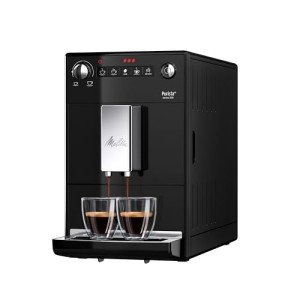Understanding Dual Boiler Espresso Machines: A Comprehensive Guide
Espresso is an art as much as it is a science. For coffee lovers and baristas alike, accomplishing the perfect shot of espresso requires precision and control over brewing variables. One of the most effective methods to accomplish this accuracy is through the use of dual boiler espresso machines. This short article digs into the functionality, benefits, and factors to consider of dual boiler espresso machines for both beginners and knowledgeable coffee connoisseurs.
What is a Dual Boiler Espresso Machine?
A dual boiler espresso machine includes 2 different boilers: one for brewing espresso and the other for steaming milk. This style permits the user to brew coffee and steam milk concurrently, achieving ideal temperature level control for both procedures. This is vital for developing lattes, cappuccinos, and macchiatos, where both components are vital.
Table 1: Key Components of Dual Boiler Espresso Machines
| Component | Function |
|---|---|
| Espresso Boiler | Heats water to the perfect brewing temperature (around 190 ° F) |
| . Steam Boiler | Heats up water to a higher temperature level (around 250 ° F) for steaming milk. |
| PID Controller | Controls the temperature of the boilers for accuracy developing. |
| Group Head | Where the coffee premises sit and warm water goes through. |
| Steam Wand | Provides steam to froth milk. |
Benefits of Dual Boiler Espresso Machines
1. Synchronised Brewing and Steaming
The most considerable advantage of dual boiler espresso machines is the ability to brew espresso and steam milk at the very same time. This performance is especially helpful in hectic environments, such as coffee shops, where speed and quality are vital.
2. Constant Temperature Control
Dual boiler machines frequently include advanced PID (Proportional Integral Derivative) controllers that preserve a constant temperature level throughout the brewing procedure. Consistency is necessary in espresso making to guarantee the very best extraction, therefore improving taste and fragrance.
3. Customization and Versatility
With 2 separate boilers, users can personalize the temperature settings for both espresso brewing and milk steaming. This means various kinds of coffee, such as lighter or darker roasts, can be prepared perfectly to suit private taste profiles.
4. Perfect for Advanced Techniques
For those interested in latte art or other advanced strategies, a dual boiler espresso machine offers the flexibility to deal with numerous milk textures while likewise extracting espresso. This versatility makes it an attractive option for baristas who wish to hone their abilities.
5. Longevity and Durability
Many dual boiler machines are developed with high-quality products designed for longevity. They are frequently made from stainless-steel and function long lasting components, making them a beneficial financial investment for anyone serious about coffee.
Downsides of Dual Boiler Espresso Machines
Regardless of their numerous benefits, dual boiler machines can have some downsides:
- Higher Cost: Dual boiler machines tend to be costlier than their single-boiler equivalents, which might not appropriate for casual coffee drinkers.
- Size and Space: These machines may occupy more countertop space than others, making them less perfect for little cooking areas.
Table 2: Key Considerations When Choosing a Dual Boiler Espresso Machine
| Consideration | Description |
|---|---|
| Budget | Dual boiler machines can vary from ₤ 1,000 to over ₤ 4,000. |
| Size | Inspect your kitchen space before acquiring. |
| Brand Reputation | Try to find well-reviewed brands with excellent customer assistance. |
| Features | Consider what features are important (e.g., PID controller, volumetric options). |
| Maintenance | Some machines may require more regular upkeep than others. |
Frequently asked questions
1. Are dual boiler espresso machines worth the financial investment?
Yes, they are worth the investment for severe coffee enthusiasts or professional baristas who value precision in espresso extraction and milk steaming.
2. How do I preserve a dual boiler espresso machine?
Routine maintenance consists of descaling the machine, cleaning up the group head, and making sure that the steam wand is without milk residue. Seek advice from the maker's manual for specific standards.
3. Can I use a dual boiler espresso machine for other brewing methods?
Typically, dual boiler machines are developed generally for espresso. Nevertheless, they can typically brew quality drip coffee and other designs with the right settings and modifications.
4. What brands are known for their dual boiler machines?
Some trusted brands include La Spaziale, Breville, and ECM. www.coffeee.uk has its own distinct features and pricing.
5. What is the average life-span of a dual boiler espresso machine?
With appropriate care and upkeep, a dual boiler machine can last over a years, making it a long-term financial investment for coffee enthusiasts.
Dual boiler espresso machines represent the apex of espresso-making technology, combining art and science into one compact gadget. While they need a higher initial investment and more countertop space, the benefits they use-- such as simultaneous developing and steaming, precise temperature control, and toughness-- make them ideal for severe coffee enthusiasts. Comprehending the operations, benefits, and factors to consider for these machines will enable consumers to make informed decisions and elevate their coffee developing experience. Whether in your home or in a busy café, a dual boiler machine can genuinely improve the art of espresso.

